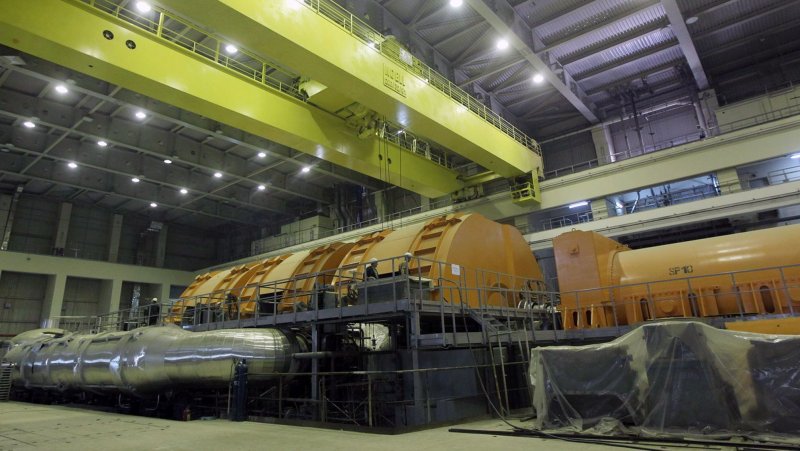An interior view of the Bushehr nuclear power plant is shown on October 26, 2010 as Iran began to load fuel into the core of its first atomic power plant some 745 miles south of Tehran. The Russian-built power plant is supervised by the United Nation's nuclear agency. UPI/Mehr News Agency/Majid Asgarpour |
License Photo
TEHRAN, Dec. 28 (UPI) -- Iran's slowing of its uranium enrichment efforts may indicate it wants a deal to end the standoff over its nuclear program with Western nations, analysts say.
Evidence last summer indicated Iran was converting a significant amount of its medium-enriched uranium for use in a research reactor, adapting it into a form that can't easily be used in a weapon, The New York Times reported.
One U.S. official said the uranium diversion amounted to trying to "put more time on the clock to solve" the standoff, which "you have to assume was highly calculated, because everything the Iranians do in a negotiation is highly calculated."
Ehud Barak, Israel's departing defense minister, also reached a similar conclusion when he said in October Israel could walk back from threats of military action against Iran, at least until the late spring or summer of 2013.
However, White House, State Department and Pentagon officials all cautioned against drawing concrete conclusions about Iran's ultimate intentions, the Times said.
A new round of talks involving Iran and six major powers, including the United States, is expected in 2013, but U.S. officials said they still can't determine whether Iran's supreme leader, Ayatollah Ali Khamenei, is ready to reach an accord, the Times said. Iran has maintained its nuclear work is for civilian purposes, while Western officials said they fear it is to develop nuclear weapons.
"It wasn't that they said yes or no," one senior official said. "They said nothing."
"I think it is hard to understand what Iran was doing if not sending a deliberate signal, signaling some cautiousness," Greg Thielmann, a former State Department intelligence analyst, said. "I think it is reasonable to see the diversion as a negotiating signal, and a note of moderation."















